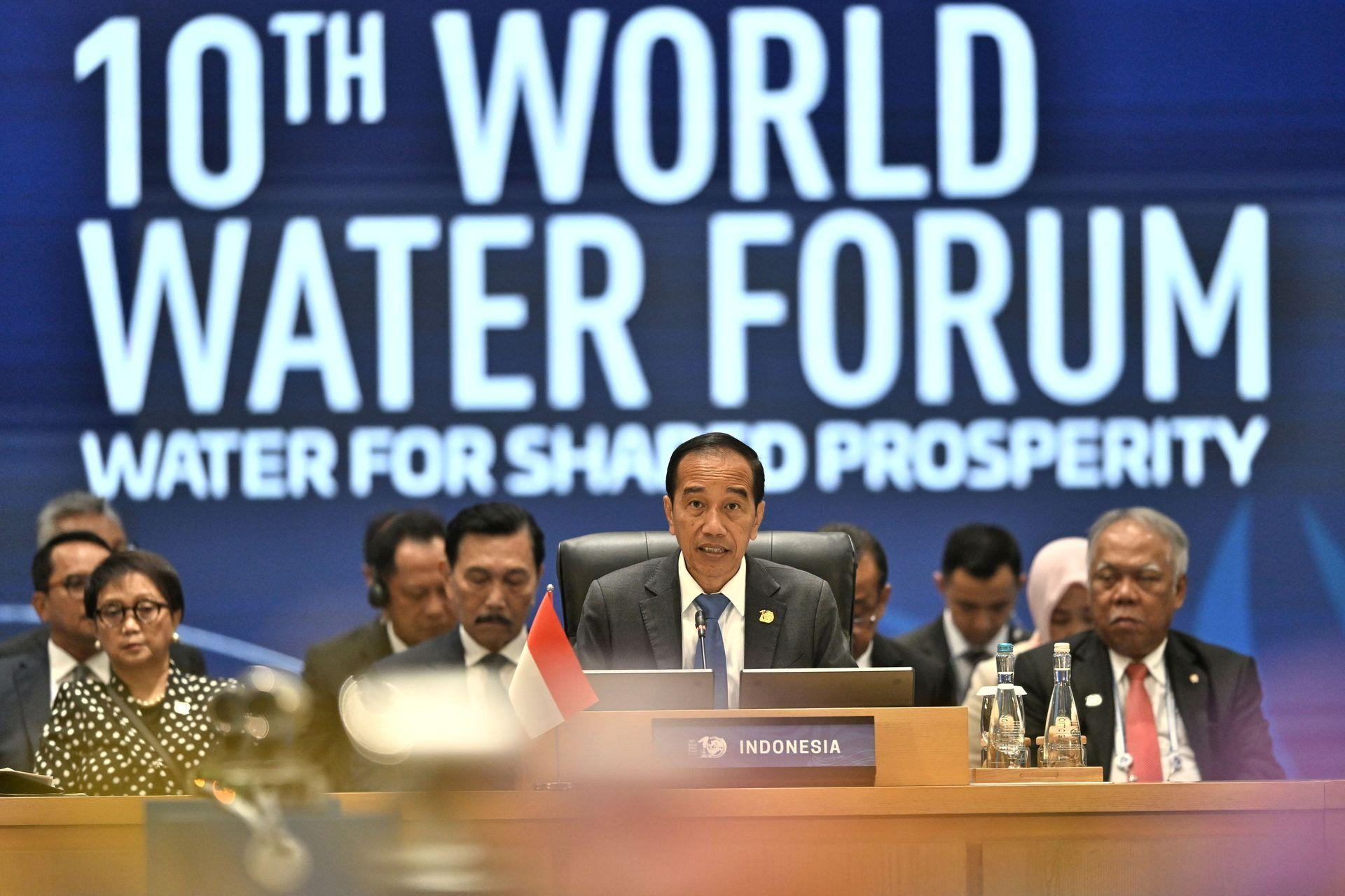Key Takeaways on Climate Change and Environmental Sustainability from the 10th World Water Forum

May 30, 2024
The 10th World Water Forum, held in Bali, Indonesia, brought together a diverse array of stakeholders to address pressing global water challenges with a strong focus on climate change and environmental sustainability. Over the course of the event, key initiatives and commitments were made, highlighting the critical role of science, collaboration, and funding in achieving sustainable water management. This forum not only underscored the importance of integrated and innovative approaches but also set the stage for concrete actions and partnerships aimed at mitigating the impacts of climate change and ensuring environmental resilience. Here are the key takeaways from the forum related to climate change and environmental sustainability.
-
Concrete Commitments and Actions: The forum produced a Ministerial Declaration with concrete results and actions, covering 113 clean water and sanitation projects worth USD 9.4 billion, involving 33 countries and 53 international organizations. This included the establishment of the Center of Excellence on Water and Climate Resilience, and the mainstreaming of integrated water resources management on small islands.
-
Science-Based Disaster Mitigation: Emphasized the critical role of science in disaster mitigation to minimize losses. Indonesia, highly vulnerable to natural disasters, highlighted the importance of research and advanced methodologies for effective disaster risk reduction. Collaborative efforts and multi-stakeholder engagement were underscored for enhancing disaster preparedness and response.
-
River Basin Management: The "Bali Basin Action Champions Agenda" was introduced to support river basin management, crucial for achieving Sustainable Development Goals (SDGs). The agenda includes the Twin Basin Initiative (TBI), focusing on capacity building and experience exchange in Integrated Water Resources Management (IWRM) at national and transboundary levels.
-
Climate Change and Agriculture: Addressed the impact of climate change on agriculture, promoting strategies such as Climate Smart Agriculture (CSA) to increase productivity, food security, and reduce emissions. This approach is tailored to unique geographic, cultural, and economic contexts, highlighting Indonesia’s experience as an archipelagic nation.
-
Enhanced Funding for Climate Resilience: Emphasized the necessity of increased funding for water crisis management, disaster relief, and climate resilience. Both government and private sectors were urged to allocate more resources for these purposes. The session discussed the importance of clear regulations and efficient use of funds, referencing successful models from developed countries.
-
Center of Excellence on Water and Climate Resilience: Initiated the establishment of a Center of Excellence (CoE) in the Asia-Pacific region to serve as a collaborative platform for addressing water and climate-related issues. The CoE aims to leverage resources, expertise, and technology through partnerships among governments, the private sector, and academia, focusing on enhancing resilience and innovation in water management.
Source: https://worldwaterforum.org/